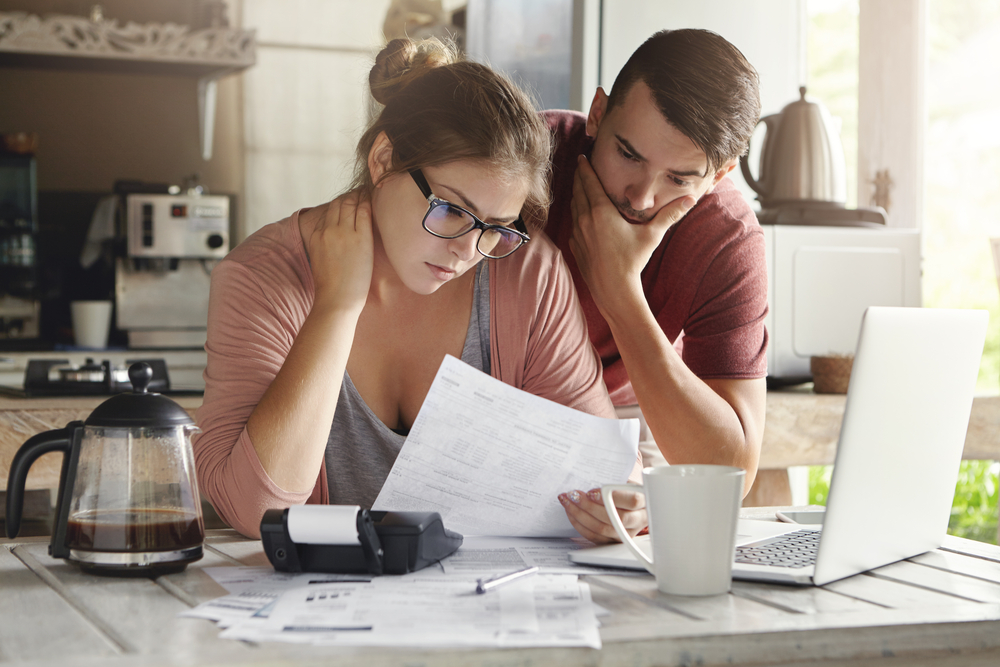Compare Personal Loans
Shop and Compare
Should I Use a Personal Loan to Pay Off Student Loan Debt?
Student loan debt is a burgeoning problem, and it’s not going away anytime soon.
According to Student Loan Hero, a total of 44.7 million U.S. student loan borrowers owe a whopping $1.71 trillion on their student loan debt. That figure is $739 billion higher than existing U.S. credit card debt.
Loan experts say the problem is worse than borrowers may think.
“Student loan debt is a major financial burden for millions of Americans,” said Katie Ross, education and development manager for American Consumer Credit Counseling (ACCC), in Washington, D.C. “The average student loan debt among borrowers is over $30,000.”
Current student loan borrowers who took out federal loans have had some relief in the past year – but that relief is going away.
“In March 2020, the CARES Act allowed federal borrowers to temporarily stop paying on their student loans due to the COVID-19 pandemic,” Ross said. “The suspension of loan payments has been extended to September 30, 2021. It’s important to note that this is simply a temporary suspension of payments, not student loan forgiveness, so borrowers must be prepared to start paying again starting in October 2021.”
RELATED:
Personal Loans as a Repayment Option?
There’s a school of thought among student loan gurus that personal loans, used correctly, can help alleviate that debt. But there are limitations.
“A personal loan can be a good option under certain circumstances,” said Carter Seuthe, chief executive officer at Credit Summit, a debt management company in Austin, Tex. “That’s mainly the case if the interest on the loan is lower and you can meet the fixed term to pay it off. A lot of younger people can’t qualify for personal loans with interest rates better than federal student loans, however.”
One area where personal loans can be an effective tool against high student loans is by using the loans to handle separate household debt, thus leaving more cash on the table to pay down student loans.
“Personal loans are a great option to pay down credit card debts racked up during college, but they don’t offer interest rates low enough to make sense for student loans,” said Michael Lux, founder of the Student Loan Sherpa, a college finance platform.
Lux’s best tip for borrowers dealing with student debt is to pick one household loan and attack it. “Pay the minimum on all of your other loans, and use every spare penny you have to eliminate that loan,” he said. “Once the first loan is paid off, pick a new one. Each time you eliminate a loan, dealing with the others gets easier.”
“I see too many borrowers treat their total student debt as one giant mountain,” Lux added. “The best approach is to treat it as many smaller, climbable hills.”
RELATED:
Alternatives to Personal Loans for Student Loan Debt
If you can’t get a good deal on a low-interest rate personal loan, try leveraging other tools to cut college loan debt down to size.
“For borrowers with federal student loans, there are many options available for paying down student loan debt,” Ross said. “Borrowers who are employed by the government or a nonprofit may be eligible for loan forgiveness under the Public Service Loan Forgiveness Program. Similarly, teachers and military members may also be eligible for loan forgiveness.”
Borrowers with federal student loans also have different repayment plan options based on income, which can be helpful in paying off student loan debt. “Contacting a nonprofit credit counseling agency can also help, as credit counselors can help borrowers explore different options, including a debt management program,” Ross added.
Generally, if a borrower holds federal student loans, financial help is easier to get compared to private student loans.
“There are good programs for reducing the monthly payment and discharging the debt in 10-or-20 years, depending on the circumstances,” said Jeffrey Scholnick, a student loan defense attorney at Silverman, Thompson in Baltimore, Md. “For private loans, this is not available. If that’s the case, a graduate may want to take a second, part-time job to dedicate exclusively to paying off the student loans.”
Get Going Now
No matter if you’re leaning on a personal loan or not in fighting high student loan debt, the key to alleviating that debt is to start early and keep paying as much money as possible.
“For new grads, start making payments as soon as you get that first job,” said Joseph Orsolini, president of College Aid Planners, Inc., in Glen Ellyn, Il. “Nobody says you have to wait for the initial six-month deferment period to start paying back your loan.”
“Get ahead of the game by repaying early.”
What to know about personal loans and to use them for paying off debt and more.How to Use Personal Loans


Brian O'Connell has been a finance writer at TheStreet, TheBalance, LendingTree, CBS, CNBC, WSJ, US News and others, where he shares his expertise in personal finance, credit and debt. A published author and former trader, his byline has appeared in dozens of top-tier national publications.




